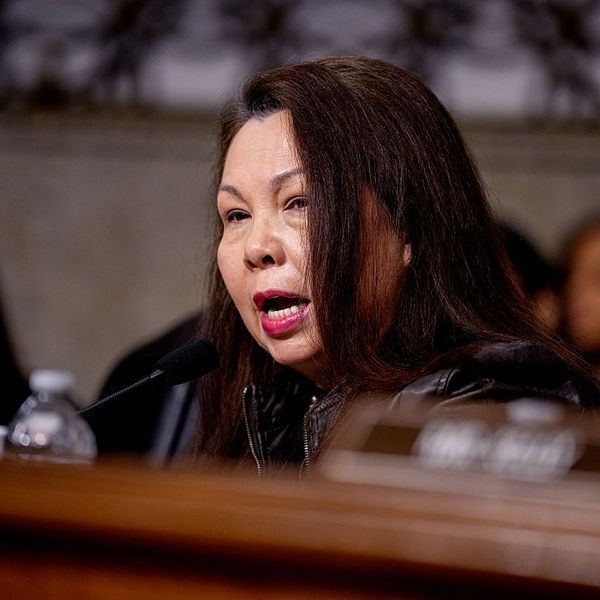Most Democrats of a certain age will remember the moment in the 1988 Vice-Presidential debate when Dan Quayle, who was running around comparing himself to President Kennedy, got this comeuppance from Senator Lloyd Bentsen:
Senator, I served with Jack Kennedy. I knew Jack Kennedy. Jack Kennedy was a friend of mine. Senator, you're no Jack Kennedy.
In the November Senate elections, you probably don't remember anyone talking about Michigan. Senate Armed Services Chair Carl Levin is retiring, but by October Levin's seat was a "safe Democratic hold," and AP called the race for Democratic Representative Gary Peters as soon as the polls closed.
But while the seat may have been a safe hold for "Democrats," it was not, apparently, a "safe hold" for Democratic supporters of President Obama's diplomatic engagement with Iran. On Iran diplomacy, Gary Peters is no Carl Levin.
Here's what Senator Levin said when the talks were extended:
"I support the decision to extend nuclear talks with Iran. To this point, the interim agreement reached a year ago has been a net plus as it has maintained the tough sanctions regime, limited Iran's uranium enrichment and provided inspectors with expanded access to Iran's nuclear facilities. The extension keeps that interim agreement in place while negotiations continue. But our goal is and should be a comprehensive agreement that ensures Iran does not build a nuclear weapon, and because such an agreement is apparently within reach, it is in the interests of the United States and our partners in this endeavor to pursue it.
"This extension demonstrates the international community's strong desire to prevent Iran from acquiring a nuclear weapon. We and our allies will be more secure with such a comprehensive agreement in hand."
Here's what Senator-elect Peters said after the talks were extended:
"...the recent extension of the P5+1 negotiations demonstrates that even tougher sanctions are needed to provide the necessary leverage to ensure Iran abandons its pursuit of nuclear weapons."
For those scoring at home, "tougher sanctions" equals "blow up diplomacy with Iran," because it's a key provision of the interim agreement that has just been extended - the one that Senator Levin says "has been a net plus as it has maintained the tough sanctions regime, limited Iran's uranium enrichment and provided inspectors with expanded access to Iran's nuclear facilities" - that the U.S. not impose new sanctions on Iran while the agreement is in force.
If the U.S. imposed new sanctions now, the Iranian government would likely say, "the U.S. broke the agreement, and therefore we are no longer bound by it," and expand its nuclear program in violation of the agreement. Thus, imposing new sanctions on Iran now, far from constraining Iran's nuclear program, would likely have the exact opposite effect, virtually guaranteeing that Iran's nuclear program would expand.
Of course, the people in Washington who are really Jonesing for a confrontation with Iran would be totally delighted with themselves if they could provoke the Iranian government into violating the agreement. Then they could howl with outrage on the Sunday talk shows and the nation's op-ed pages: you see, we told you that the Iranians could not be trusted! That's why we have to bomb them now! But that kind of adventurism, which produced the never-ending Iraq war, is clearly not in the interest of the majority of Americans.
Unfortunately, pursuing diplomacy with Iran to prevent war in the future is like "closing the gun show loophole" on background checks for gun purchases: most Americans want it, but it's opposed by a fanatic minority whose ongoing political engagement is much more focused and intense. So what many Members of Congress perceive is that everyone who is talking to them wants new Iran sanctions yesterday.
That's why the still too quiet majority must ramp up its engagement to defend diplomacy. If enough Michigan Democrats get on the horn, maybe Gary Peters will find a phone booth and change into Carl Levin.


